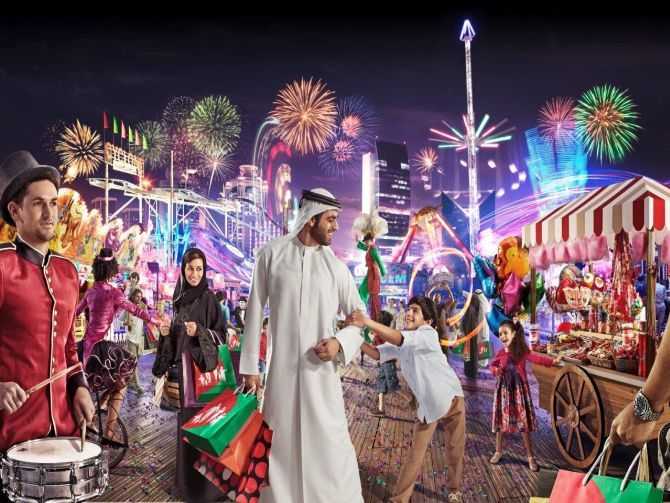Dubai isn’t only about skyscrapers and luxury shopping. Beneath the modern shine, there’s an intimate world of oral tradition reviving quietly through festivals. International storytelling festivals in Dubai have been drawing both local and global voices, creating a space where tales pass from one heart to another. These events don’t just entertain—they reconnect people with memory, identity, and emotion. Most festivals occur during the cooler months, from November to March, when open-air settings become ideal for gathering communities under starry skies.
Al Marmoom Heritage Festival weaves storytelling into desert life
Though often associated with camel racing and Bedouin traditions, the Al Marmoom Heritage Festival includes storytelling tents where elders and invited speakers share folk narratives. Set against the backdrop of the desert, the event allows attendees to listen to real-life migration stories, epic family sagas, and pre-oil memories. Sessions are held in both Arabic and English, sometimes translated live. These storytelling segments are not always pre-announced, which adds to their charm. If you’re visiting the festival area, don’t hesitate to ask local volunteers about the cultural tent schedule.
Expo City often hosts international narrative performances
Expo City, which continues to operate post-Expo 2020, has become a vibrant venue for multicultural events. Several narrative performances from countries like India, Kenya, France, and Indonesia have been held here, especially during Dubai Art Season. Storytelling here merges with theater, shadow puppetry, or live illustration. The atmosphere is immersive, and the architecture of the pavilions enhances the emotional depth of the performances. Many shows are free but may require pre-booking, especially during weekends or when held in smaller domes.
The Emirates Airline Festival of Literature brings wordsmiths together
Although widely known for hosting authors and poets, this festival, held annually in Dubai, includes storytelling sessions for all ages. These aren’t just book readings. Professional storytellers are flown in from around the globe to narrate personal journeys, myths, and even therapeutic tales. The venues vary—from auditoriums in Intercontinental Festival City to outdoor lounges along Dubai Creek. For families, interactive storytelling gardens offer bilingual sessions, including Arabic-English formats, which make language learning a joyful experience.
Cultural foundations in Al Fahidi district curate story circles
Tucked between wind towers and coral stone walls, the Al Fahidi Historical Neighbourhood often becomes a host to seasonal storytelling gatherings. These are typically more intimate than festival-style events. Organized by cultural foundations or independent creatives, they focus on heritage themes like pearl diving, migration, or Emirati proverbs. Sitting on floor cushions, with Arabic coffee and dates being passed around, visitors can hear stories that were once only shared in family gatherings. According to the www.few.ae team, these evenings are some of the most authentic narrative experiences in the city.

Public libraries occasionally transform into storytelling hubs
Dubai’s public library system, particularly the Al Safa Art & Design Library and Mohammed bin Rashid Library, organizes international storytelling events during themed weeks. These aren’t limited to children’s programming. Adult sessions delve into refugee tales, climate fiction, and indigenous legends. Sometimes a visiting author joins local narrators, blending different narrative styles. The libraries usually update their event calendars monthly, and joining is as simple as registering on arrival. Weekday evenings and Friday mornings are the most active times.
Pop-up storytelling circles appear during seasonal markets
Dubai’s winter markets, like the Ripe Market or those at JLT Park and Dubai Design District, often feature open-mic tents or community storytelling zones. Here, international residents share real stories—sometimes funny, sometimes heartbreaking. No script, no filter. These spaces give stage time to everyday voices: a Filipina nanny’s memory from Manila, an Indian entrepreneur’s childhood tale from Jaipur, or a Sudanese father recounting a desert journey. These narratives feel raw and local, not rehearsed.
Arabic storytelling is reclaiming cultural depth through festivals
UAE-based Arabic storytellers are reclaiming “al hakawati” traditions through modern platforms. Several events now highlight this form, from spoken word contests to historical reenactments told through narrative. Places like the House of Wisdom in Sharjah and cultural halls in Deira host Arabic storytelling nights, some with oud music or incense to create a multi-sensory atmosphere. These nights aren’t tourist shows. They are carefully curated to preserve linguistic beauty and oral cadence.
International schools open their stages for global stories
Some of Dubai’s international schools invite the public during their annual culture weeks, offering multilingual storytelling evenings. These may feature parents, students, or invited speakers representing over 20 nationalities. A Swedish snow tale might be followed by a Ghanaian fable or a Japanese folklore dramatized by puppets. The schools usually announce these events in advance on their community portals or local newsletters. If you’re a resident or long-term visitor, these gatherings offer a different, grassroots experience.
Respect storytelling as a shared emotional space
One unspoken rule at these festivals is presence. Phones are often discouraged, not through signage but by shared awareness. Attendees are expected to listen, not just observe. Many events begin with a moment of quiet, allowing people to arrive emotionally, not just physically. Sitting in a circle or under a canopy, as a voice begins a tale with “once upon a time,” you’ll sense how universal stories truly are.
In Dubai, storytelling isn’t just entertainment—it’s a cross-cultural bridge, healing thread, and living memory wrapped in spoken words.
